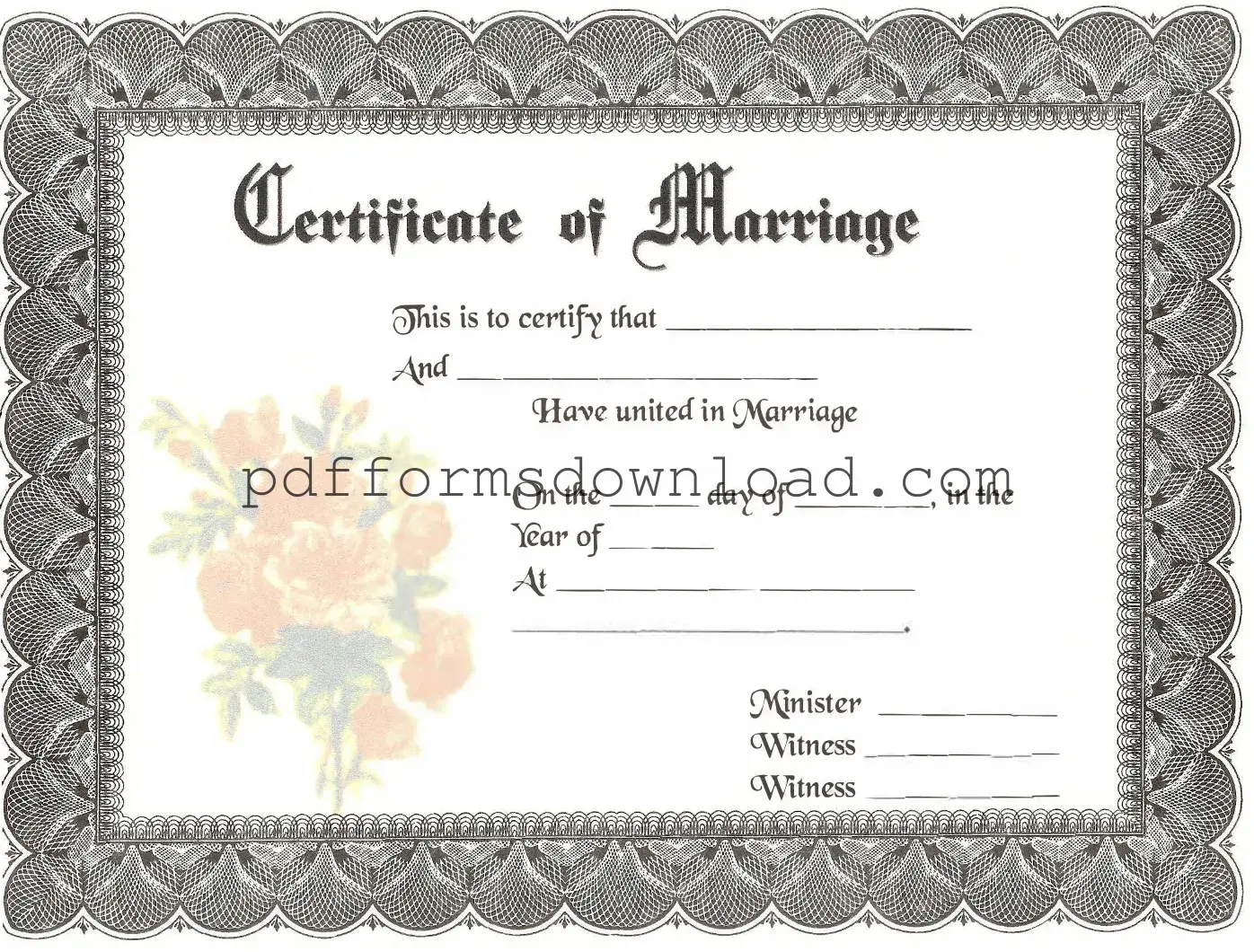Download Marriage Certificate Template
A Marriage Certificate form is a legal document that officially records the union between two individuals. This form serves as proof of marriage and is essential for various legal purposes, including name changes and spousal benefits. To ensure a smooth process, consider filling out the form by clicking the button below.
Make This Document Now

Download Marriage Certificate Template
Make This Document Now

Make This Document Now
or
Free PDF File
Your form is almost ready
Complete your Marriage Certificate online — edit, save, and download easily.